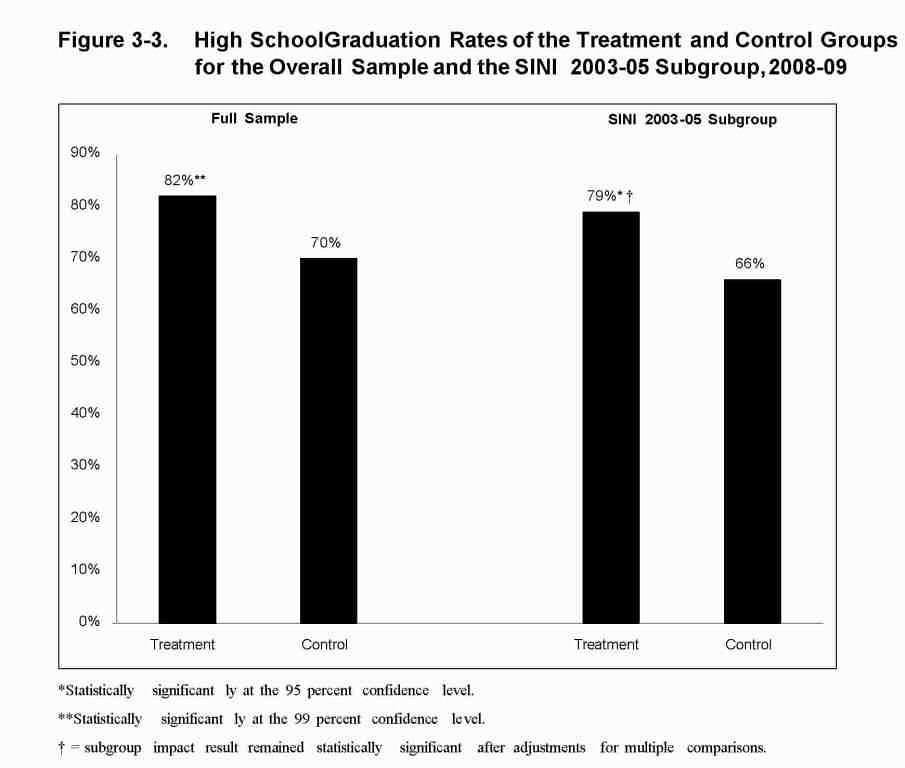But the most obvious conclusion seems to be the one the author missed!!
The 21% difference, (70-49%) is between parents of kids that were interested enough to apply for vouchers, and the average DC kid's graduation rate.
Essentially, parental interest in their kids education, not the vouchers, had the largest impact on graduation rate.
The difference between the 70% rate of the ones who applied & the 91% rate of the ones who applied & used vouchers is also 21%. Vouchers have the exact same observed impact as parent involvement.
More astonishing is the fact that adding parental interest and vouchers did not diminish each others effect. Combining both 21% impacts actually equaled a 42% result. Since we do not have a group of dis-interested parents getting vouchers, I am going to assume that the vouchers play a larger role than the observed measurement. Because adding stimuluses usually results in diminishing returns especially as you approach 100%.
No.
The 91% number is derived by the logically challenged author,
Indeed 70 + 21 = 91, but this has nothing to do with results.
The chart in the report shows a 12% increase in voucher graduation rates over control group.



